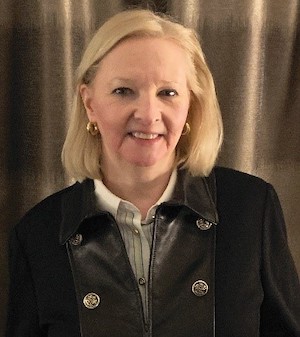News
Open Source in the Worldwide COVID-19 Response
 February marks the celebration of creation of the Open Source Initiative (OSI) in 1998. OSI created the standard definition of the term Open Source that helped guide many of LPI's initiatives today. Through the past year, open source provided many opportunities to organizations to continue to work, implement their projects, and continue reaching out to communities. Here are just a few examples of how open source provides opportunities through the face of COVID-19. The COVID-19 crisis brought out all the creativity of the open source movement. In every area of innovation--open source software, open data, open collaboration, and even open equipment--companies and research institutes have addressed medical and public health needs quickly. This article highlights some of the initiatives in each area.
February marks the celebration of creation of the Open Source Initiative (OSI) in 1998. OSI created the standard definition of the term Open Source that helped guide many of LPI's initiatives today. Through the past year, open source provided many opportunities to organizations to continue to work, implement their projects, and continue reaching out to communities. Here are just a few examples of how open source provides opportunities through the face of COVID-19. The COVID-19 crisis brought out all the creativity of the open source movement. In every area of innovation--open source software, open data, open collaboration, and even open equipment--companies and research institutes have addressed medical and public health needs quickly. This article highlights some of the initiatives in each area.
- Login to post comments
- News
18 Ways To Differentiate Open Source Products From Upstream Suppliers
 Successful open source products must be able to charge a cost that is sufficient to pay for the defrayed upstream open source contributions (development costs) and the downstream productization costs (vendor costs). Stated another way, products can only charge a sufficient price if they create value that can only be captured by customers paying for them. That might sound harsh, but it's a reality for all products. There's a saying in product management: Pray to pay doesn't work. With that said, don't be too worried. There are ethical ways to capture value.
Successful open source products must be able to charge a cost that is sufficient to pay for the defrayed upstream open source contributions (development costs) and the downstream productization costs (vendor costs). Stated another way, products can only charge a sufficient price if they create value that can only be captured by customers paying for them. That might sound harsh, but it's a reality for all products. There's a saying in product management: Pray to pay doesn't work. With that said, don't be too worried. There are ethical ways to capture value.
- Login to post comments
- News
What is openEHR and why is it important?
 NHS Wales Informatics Services has been carrying out a technical evaluation into openEHR to test its viability as a repository for structured clinical data. The technology will be rolled out soon to support national projects such as Accelerating Cancer and to provide a shared medications record for NHS Wales. openEHR...offers a specification for a vendor neutral approach to open standards based clinical models and software. On top of this, we can build digital patient records and applications. And as it is a specification, openEHR based tools and repositories are available from several vendors but importantly, they all promise compatibility with each other's products. This means data held in one openEHR Clinical Data Repository (CDR) can be surfaced in a variety of places, natively supporting federated approaches for stakeholder organizations.
NHS Wales Informatics Services has been carrying out a technical evaluation into openEHR to test its viability as a repository for structured clinical data. The technology will be rolled out soon to support national projects such as Accelerating Cancer and to provide a shared medications record for NHS Wales. openEHR...offers a specification for a vendor neutral approach to open standards based clinical models and software. On top of this, we can build digital patient records and applications. And as it is a specification, openEHR based tools and repositories are available from several vendors but importantly, they all promise compatibility with each other's products. This means data held in one openEHR Clinical Data Repository (CDR) can be surfaced in a variety of places, natively supporting federated approaches for stakeholder organizations.
- Login to post comments
- News
Is It Time to Purchase Your Own Quantum Computer?
 I want to talk about quantum computing – and why healthcare needs to looking ahead to it. Let’s start with this: for the low, low price of $5,000, you could have your very own quantum computer. Spin Q Technology, a Chinese company, has recently introduced its Spin Q, a less expensive, less powerful version of its Spin Q Gemini, which went for $50,000. Other quantum computers, such as those by Google, IBM, or D-Wave, have a few more zeroes in their price. Spin Q Technology has a clear goal in offering this version:We believe that low-cost portable quantum computer products will facilitate hands-on experience for teaching quantum computing at all levels, well-prepare younger generations of students and researchers for the future of quantum technologies."
I want to talk about quantum computing – and why healthcare needs to looking ahead to it. Let’s start with this: for the low, low price of $5,000, you could have your very own quantum computer. Spin Q Technology, a Chinese company, has recently introduced its Spin Q, a less expensive, less powerful version of its Spin Q Gemini, which went for $50,000. Other quantum computers, such as those by Google, IBM, or D-Wave, have a few more zeroes in their price. Spin Q Technology has a clear goal in offering this version:We believe that low-cost portable quantum computer products will facilitate hands-on experience for teaching quantum computing at all levels, well-prepare younger generations of students and researchers for the future of quantum technologies."
- Login to post comments
- News
Incident Command System Should Not Be Used For Continuity Of Operations
 Let me reiterate, the INCIDENT Command System (ICS) should not be used as the organizational structure to continue operations. No way, no how. I promised a few articles ago I was going to tackle this issue – an issue which has evolved over the last 20 years or so. I will add my theories on why a preponderance of well-intentioned folks have advocated the ICS structure be used as the “logical” (to them) structure to continue the operations of an organization. I believe I speak authoritatively on this having had both feet squarely planted in emergency management and continuity communities over the past 33 years.
Let me reiterate, the INCIDENT Command System (ICS) should not be used as the organizational structure to continue operations. No way, no how. I promised a few articles ago I was going to tackle this issue – an issue which has evolved over the last 20 years or so. I will add my theories on why a preponderance of well-intentioned folks have advocated the ICS structure be used as the “logical” (to them) structure to continue the operations of an organization. I believe I speak authoritatively on this having had both feet squarely planted in emergency management and continuity communities over the past 33 years.
- Login to post comments
- News
An Argument for Standardized Reference Terminologies
 As a National Institutes of Health (NIH) article explains, standardized data is ‘crucial for data exchange between health information systems, epidemiological analysis, quality and research, clinical decision support systems, administrative functions.” Terminology is an important part of medicine. In short, it is a clinicians’ extensive healthcare vocabulary, which they use to describe a patients’ conditions and health events. With the onset of EHRs, clinicians are responsible for documenting patient information in EHRs. This is now properly done with standardized reference terminologies and not home-grown ones.
As a National Institutes of Health (NIH) article explains, standardized data is ‘crucial for data exchange between health information systems, epidemiological analysis, quality and research, clinical decision support systems, administrative functions.” Terminology is an important part of medicine. In short, it is a clinicians’ extensive healthcare vocabulary, which they use to describe a patients’ conditions and health events. With the onset of EHRs, clinicians are responsible for documenting patient information in EHRs. This is now properly done with standardized reference terminologies and not home-grown ones.
- Login to post comments
- News
How Open Source Builds Distributed Trust
 This distillation of collective experience allows what we refer to as distributed trust and is collected through numerous mechanisms on the internet. Some, like TripAdvisor or Glassdoor, record information about organisations or the services they provide, while others, like UrbanSitter or LinkedIn, allow users to add information about specific people (see, for instance, LinkedIn's Recommendations and Skills & Endorsements sections in individuals' profiles). The benefits that can accrue from these examples are significantly increased by the network effect, as the number of possible connections between members increases exponentially as the number of members increases.
This distillation of collective experience allows what we refer to as distributed trust and is collected through numerous mechanisms on the internet. Some, like TripAdvisor or Glassdoor, record information about organisations or the services they provide, while others, like UrbanSitter or LinkedIn, allow users to add information about specific people (see, for instance, LinkedIn's Recommendations and Skills & Endorsements sections in individuals' profiles). The benefits that can accrue from these examples are significantly increased by the network effect, as the number of possible connections between members increases exponentially as the number of members increases.
- Login to post comments
- News
Resilience Must Be Blind to Catalyst - Part II
 If this is the first time you are reading something from me, let me introduce you to a phrase I coined in the early 2000s: "resilience (and continuity) is blind to the catalyst." My oft-repeated comment was to present an alternative to the emergency management foundations that were creeping into the continuity lexicon, whereby contingency planning is typically done with a "commensurate with the hazard" or "capabilities-based" approach. Resilience is and must be viewed with a much higher level of consideration…and NOT limited to specific hazards or capabilities. As I most certainly just ruffled feathers of some of my dearest and most deeply respected emergency management professionals, let me explain.
If this is the first time you are reading something from me, let me introduce you to a phrase I coined in the early 2000s: "resilience (and continuity) is blind to the catalyst." My oft-repeated comment was to present an alternative to the emergency management foundations that were creeping into the continuity lexicon, whereby contingency planning is typically done with a "commensurate with the hazard" or "capabilities-based" approach. Resilience is and must be viewed with a much higher level of consideration…and NOT limited to specific hazards or capabilities. As I most certainly just ruffled feathers of some of my dearest and most deeply respected emergency management professionals, let me explain.
- Login to post comments
- News
History Shows that Openness Is a Key to Innovation
 Innovations come from humble places, Ridley's argues, and large, bureaucratic corporations were not particularly good at developing innovative products. Instead, small, loosely assembled communities (open organizations with front line teams) have been more innovative throughout history. They have been far more capable of exploring new concepts, particularly if they have a wide base of contributions to work with. Let me review two historical examples of this, drawn from Ridley's work (one brief, one lengthier).
Innovations come from humble places, Ridley's argues, and large, bureaucratic corporations were not particularly good at developing innovative products. Instead, small, loosely assembled communities (open organizations with front line teams) have been more innovative throughout history. They have been far more capable of exploring new concepts, particularly if they have a wide base of contributions to work with. Let me review two historical examples of this, drawn from Ridley's work (one brief, one lengthier).
- Login to post comments
- News
A Perspective of Resilience as Pertains to the Risks Posed by Relying on Digital Platforms
 Over the past few months, we have witnessed the "Pushmi-Pullyu" of Big Tech controls and their political influence/power of digital platforms, legislative hearings on their control, public outrage, alternative platforming, censorship, etc. etc...I should say now: this is not a political commentary. It is however a perspective of resilience as pertains to the risks of digital platform reliance. It would seem easy to write about this right now after high profile platforms have made history-making decisions over the past few days. BUT the recognition of their broad authorities and critical capabilities has been a recognized risk for many years; this is not new.
Over the past few months, we have witnessed the "Pushmi-Pullyu" of Big Tech controls and their political influence/power of digital platforms, legislative hearings on their control, public outrage, alternative platforming, censorship, etc. etc...I should say now: this is not a political commentary. It is however a perspective of resilience as pertains to the risks of digital platform reliance. It would seem easy to write about this right now after high profile platforms have made history-making decisions over the past few days. BUT the recognition of their broad authorities and critical capabilities has been a recognized risk for many years; this is not new.
- Login to post comments
- News